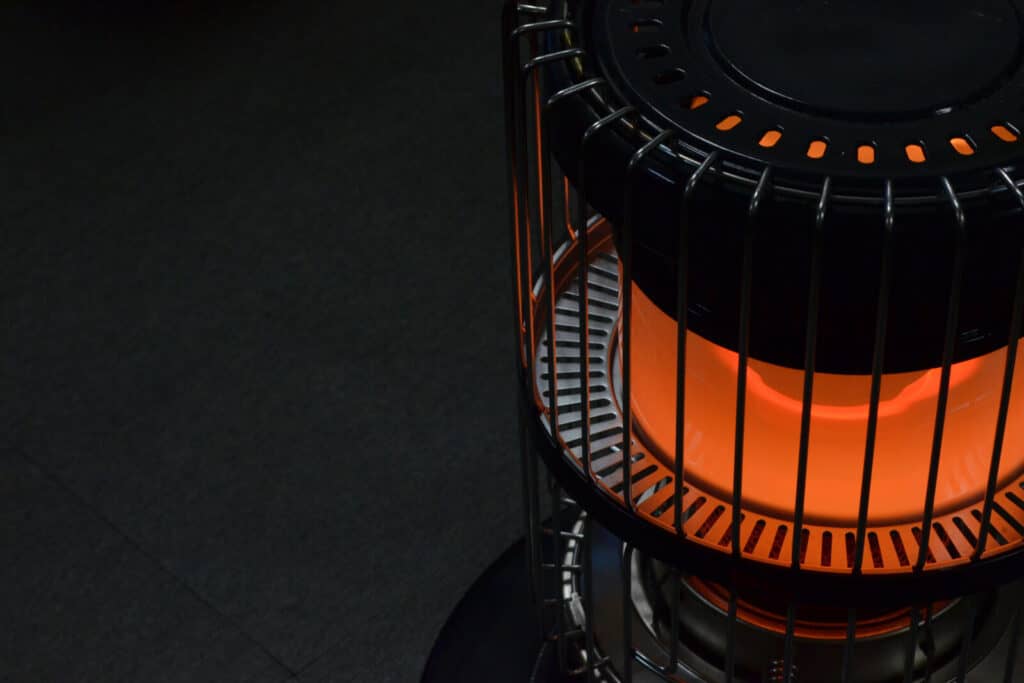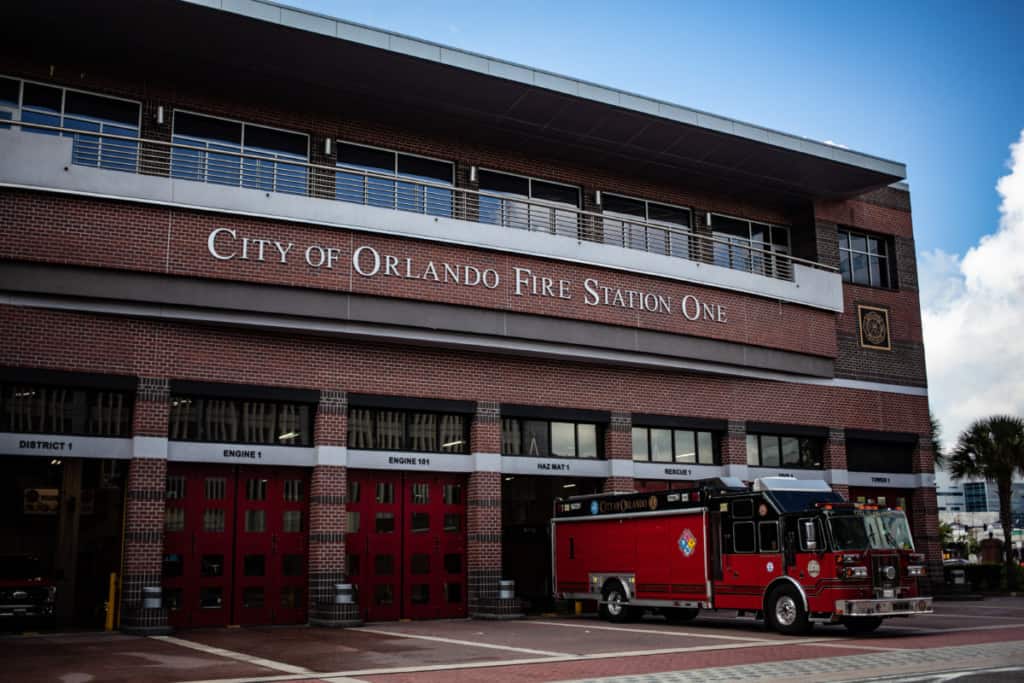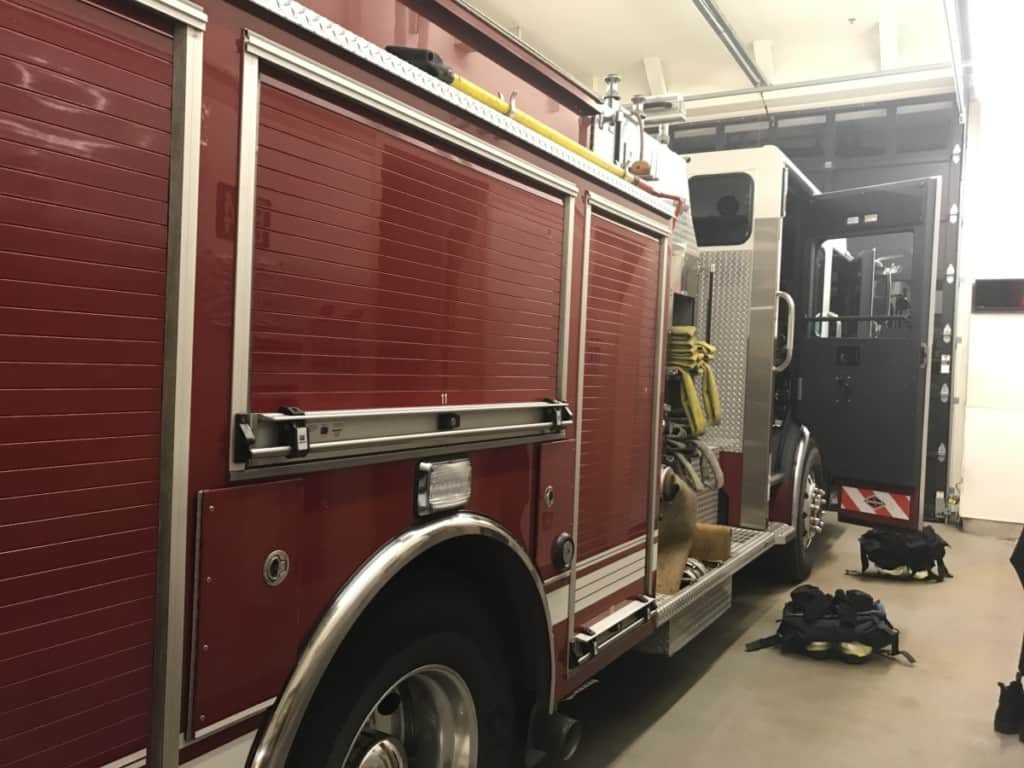We’ve all got to keep warm, right? In fact, heat is one of the most basic of all human needs and without a comfortable temperature we could be miserable, we could get sick, and if it gets cold enough? Then it could be much worse. However, many forms of heating are quite expensive whereas propane is cost-effective, but is it safe to drag your propane heater into your home?
It is safe to use a propane heater indoors ONLY if it is a heater designed for indoor use. You should not bring an outdoor propane heater inside, as this can release carbon monoxide or displace the oxygen needed to breathe.
It’s very important, however, to understand the health risks that you might face by burning propane indoors, so that you can limit them.
Your # 1 priority is keeping your family safe. As a firefighter, I recommend everyone has updated smoke detectors that don’t require battery changes, like these ones from Kidde, a fire extinguisher, like this one from Amerex, and a fire escape ladder if you have bedrooms above the first floor, I recommend this one from Hausse.
Also read: How Hot Does Propane Burn? Answered
What Is Propane?

Propane is a gas and a simple alkane with the formula of C3H8. That means it’s made of nothing but carbon and hydrogen both of which can be burned “cleanly” when it is used as a fuel. By which we mean more cleanly than say petrol or coal (CO2 is, of course, greenhouse gas and burning any hydrocarbon produces CO2).
One of the reasons that propane is popular as a fuel is that when it is placed under compression – the gas becomes liquid and that makes it much easier to safely transport than say canisters of methane (another alkane).
Humanity has been using propane since the 19th century and it was discovered by a French chemist in 1857. In the early parts of the 20th century, it began to be sold commercially, reaching the United States in about 1911.
In recent years, it’s become popular for heating and stoves for camping, RVs, backyard barbecues, etc. as it’s very easy to use and as soon as you open the cylinder, the escaping propane vaporizes.
What Is A Propane Heater?
A propane heater as the name suggests is simply a heater that burns propane. They come in all shapes and sizes depending on the exact nature of the heater required.
What they all have in common is that they need no vaporizing device as propane vaporizes automatically and this makes propane heaters cheaper than other styles of heater as they only need a metering nozzle to direct the flow of the gas.
Oddly, propane is not particularly “energy-dense” and that means the flame it produces is cooler than you would get from burning coal or gasoline, this is not a bad thing, however, and it’s more than hot enough that you can cook with it or use it to get warm.
Are Propane Heaters Safe?
Propane heaters are very popular across America and when they are used correctly, they should be very safe, indeed.
That means you should read the manual when you purchase a propane heater and make sure that it’s suitable for the task at hand.
Propane heaters designed for indoor use are the only kind that you should consider allowing in your home, those for outdoor use may create too many fumes or be poorly heat shielded and be able to cause a fire.
Can You Use A Propane Heater Indoors?
Yes. There are plenty of propane heaters designed for indoor use and as long as you follow the instructions carefully – they should be perfectly safe to use.
While, in theory, a propane heater is a fire hazard, there aren’t that many indoor fires started by accident using a propane heater as they are very simple devices to use.
However, there are other considerations to be aware of when using a propane heater.
Do You Need Proper Ventilation When Using A Propane Heater?
Yes. There are two good reasons that when using a propane heater you should have proper ventilation:
- To prevent the build up of propane gas if the gas cylinder were to start discharging, this reduces the likelihood of accidental ignition or inhaling too much propane.
- To prevent the build up of waste gases from the propane heater’s flame. A propane heater produces water, carbon dioxide and carbon monoxide only. Assuming there is adequate ventilation (and thus a source of oxygen) then carbon monoxide will be kept to a minimum, however, if you were to allow enough carbon dioxide to be generated in a small space – it would impair your breathing and cause respiratory distress.
In this video, they test the safety of using an indoor propane heater:
Carbon Monoxide Poisoning From A Propane Heater?
In theory, yes.
Carbon monoxide is a poisonous gas because it binds to the oxygen receptors in our blood cells at the sites where oxygen should bond. Unlike oxygen, however, once bonded it will not come off the cell.
If you breathe enough carbon monoxide, then it becomes impossible to breathe properly even if you are given pure oxygen. Thus, it’s a bad idea to breathe in carbon monoxide.
However, when it comes to a propane fire as long as you have enough oxygen in the first place – e.g. the room is well-ventilated – then the amounts of carbon monoxide produced should be trivial and the risks of carbon monoxide poisoning should be low.
Does A Carbon Monoxide Detector Detect Propane?
No. Every house should have carbon monoxide detectors installed because one of the curious things about carbon monoxide is that breathing it causes no distress at all – you simply fall asleep and if you’re not rescued by then, you don’t wake up.
So, a detector that can warn you of rising levels is essential for your safety.
But a carbon monoxide detector will not detect any propane leaking from a propane heater. The two gasses are completely different in terms of their chemical nature.
Is It Safe To Leave A Propane Gas Heater On Overnight?
We wouldn’t recommend leaving any heater on overnight. It’s a fire hazard.
With a propane gas heater, there is also the outside chance that it begins to leak propane or the flame begins to generate carbon monoxide and you don’t want to breathe either of them when you sleep.
Is Propane Toxic?
No. Alkanes are fairly harmless to human beings in small quantities and the big risks in large quantities come from suffocation and ignition/explosion hazards.
There’s certainly no way to eat or drink propane (it turns into a gas as soon as it leaves the canister and if you could cool it down enough to make it liquid again – the liquid would freeze your lips and mouth as soon as they touched it).
Is It Safe To Breathe Propane?
No. While Propane is not toxic to human beings, we need oxygen to breathe. Propane is heavier than air. So, it drops to the floor and then slowly builds up from there.
If you’re breathing propane, you have two problems – the first is that you’re going to start suffocating (literally drowning in propane) because the gas has displaced all the oxygen and the second is – that much propane is a massive fire risk. A single spark could blow up the space.
Can Propane Heaters Cause Headaches?
It’s unlikely when a propane fire is in normal use. However, if carbon monoxide, carbon dioxide, or propane build up in sufficient quantities then it’s possible for them to cause headaches.
This is why ventilation is so important when using propane indoors.
Can Propane Heaters Cause Dizziness?
As with headaches, under normal circumstances, we wouldn’t expect someone using a propane fire inside to be afflicted with dizziness.
However, this is a potential side effect of poor ventilation and the build-up of propane, carbon dioxide, and/or carbon monoxide.
If you experience either headaches or dizziness when using a propane stove, you should switch it off and remove the propane source and leave it outside the home.
Then you can get a professional to check the area for carbon monoxide build-up and examine the propane source for leaks before you start using it again.
What Does Propane Poisoning Feel Like?
“Propane poisoning” is asphyxiation.
It feels very similar to drowning. You may feel a “burning sensation”, have convulsions, start coughing, be dizzy, have a fever, feel weak, have headaches, have heartbeat problems, feel lightheaded, pass out, vomit or have diarrhea, and you may feel pain in your arms and legs too.
Sources: 1 2 3 4 5 6 7 8 9 10 11
Related Articles
How Do Firefighters Check for Carbon Monoxide (CO)?

